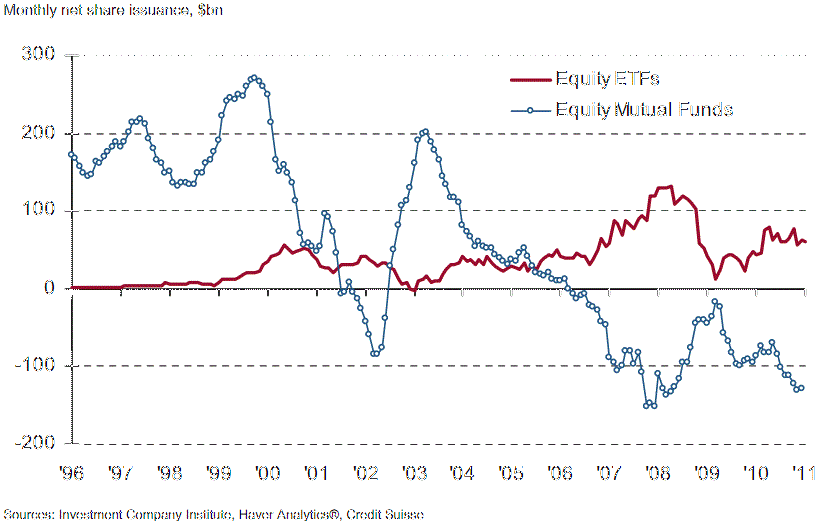ETFs v Funds Understand ETFs v Funds
Post on: 8 Апрель, 2015 No Comment

Do You Understand the ETFs vs. Mutual Funds Debate?
You can opt-out at any time.
Plenty of articles, white papers and studies have been written about the advantages and disadvantages of ETFs versus mutual funds. But do any of these debates actually help investors determine if they should be buying ETFs instead of mutual funds. My question is, “Should the debate of ETFs versus mutual funds be a passive management versus active management debate — and then which investment vehicle should you choose? ETFs or mutual funds?”
Deloitte’s Study: ETFs vs. Mutual Funds
Deloitte, one of the largest professional services organizations in the world, recently published its 2009 study regarding whether or not investors should choose ETFs versus mutual funds. Deloitte’s work includes some excellent research and facts for beginners — providing a clear overview of the topic. Unfortunately, it falls short on providing the kind of individualized information you need if you are trying to make a decision whether to buy ETFs or mutual funds for your portfolio.
Deloitte’s study explains the creation-redemption process, the role of authorized participants and the three different structures of ETFs. Where the piece falls short — as does nearly every other piece I have read on the topic — is in taking a fair look at why investors might choose to buy ETFs over mutual funds or vice versa.
Again, the Deloitte study is a great read if you would like to learn more about what makes ETFs different from mutual funds. But, I believe the choice of which type of investment to pursue — if only one is to be chosen — is more a question of passive versus active management style, and it is not mutually exclusive. Certain investors might choose to own both ETFs and mutual funds to round out their portfolios. Simply put, an examination of the advantages and disadvantages of both ETFs and mutual funds alone will not help you decide whether a particular investment strategy is best for you.
Passive vs. Active; ETFs vs. Mutual Funds
If you need to decide whether it is best for you to invest in ETFs or mutual funds, the first step you need to take requires you to understand active versus passive investing strategies. If you believe in active management over passive management (i.e. you think there is value to someone choosing particular stocks over a broad-based index), then you will prefer mutual funds (Yes, there are several actively-managed ETFs, but not enough to choose from at this point).
If you believe in passively-managed investing (for simplicity’s sake, let’s call this “indexing”), then you should compare ETFs to index mutual funds before making your investment choice. In other words, don’t get caught in the trap that ETFs are cheaper, more tax-efficient, and so on — the facts are that there is little difference between ETFs that track broad-based indexes and index mutual funds (in terms of cost and tax-efficiency).














